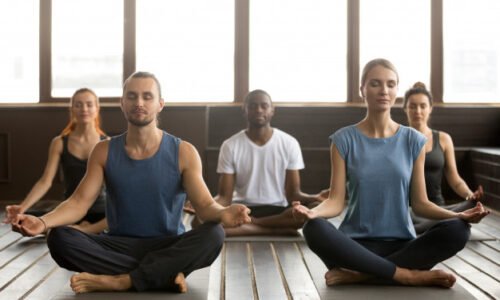5 Benefits Of Recreational Therapy
Recreational therapy is also known as therapeutic recreation and it can benefit a wide range of patients. This systematic process utilizes activity-based treatment to help individuals. Eligible participants of this treatment include patients with: illnesses, disabling conditions, psychological issues, physical health, and substance abuse disorders. You might be wondering what does a recreational therapist do? Activities include but are not limited to: crafts, music, dance, drama, games, sports, adventure programming, dance, and movement. Read more about therapeutic recreation benefits below.
A recreational therapist might also include activities such as: skill enhancement activities, motor, locomotion, sensory, cognition, communication, and behavior in the patient’s treatment. Despite how the name might sound, it’s not all fun and games at all times. Therapeutic recreation is designed to rehabilitate a patient’s level of functioning and independence. Additionally it promotes health, wellness, and reduces or eliminates the activity limitations and restrictions to participation in life situations caused by an illness or disabling conditions.
Playful movements have amazing healing powers!
Especially for patients combating trauma, physical, emotional, mental health issues, and substance abuse disorders. Some examples of therapeutic recreation and their benefits:

- Recreational art can help develop a patients sense of well being both physically and mentally. The patient can express themselves all while developing self esteem, self awareness, social skills, and emotional coping skills.
- Recreational music can help patients build self confidence, awareness, and character. Learning how to do something new is beneficial for character development and esteem. It can build patience, perseverance, and increase motivation.
- Dance Movement Therapy is great because it’s fun and gets the body moving. Exercise also releases much needed endorphins! Mental and physical health are often connected.
- Sports therapy is perfect for patients in recovery from substance abuse disorder. It relieves stress and anxiety as well as builds character. Developing athletic skills enhances self esteem and physical discipline. There are a wide variety of sports one can participate in from very difficult to fairly simple. For example anything from running to tossing a ball. Additionally many sports therapies are modified to increase in difficulty as the patient becomes stronger. These types of activities often develop a sense of motivation, compelling the patient to keep trying harder.
- Group recreational activities can help patients rebuild social skills and confidence because they are guided through social interactions rather than having to do it on their own. These activities can help patient recovering from substance abuse disorder because they re-learn how to coexist and interact with other humans in a sober environment. Interactive games can also reduce stress and anxiety which are often triggered by the fear of the unknown. Similarly activities like group games give patients who would otherwise not have anything to be excited about something to look forward to. Patients are rewiring their brain with basic skills and activities.
There are physical and mental recreational therapy activities.
There are two main categories of recreational therapy activities a therapist will do with a client: physical and mental. Physical recreational therapy includes games and activities that require some amount of movement. Bodies in movement increase motivation, self awareness, and even self confidence. Mental activities on the other hand are designed to help the patient strengthen aspects of their mind. For example: memory, emotional stability, or concentration. A patient might work a puzzle, flip over cards to match images, or identify objects of the same color or shape.
More benefits of recreational therapy include: rebuilding skills, improving mood, and improving quality of life. Furthermore it can help patients rebuild social skills and connections. What does a recreational therapist do? They will suggest and guide patients with activity either physical or mental in nature. Sometimes games might be played, they can be singular, small group, or large group games.
Some examples of mental therapeutic games:

- Picture matching games: mental emotional in nature. Photos can be glued to cards, such as animals or food. Patients can try to match similar colors, shapes, or backgrounds. Games like this can be played with any size group.
- Bingo Plus: this game is perfect for inpatient rehabs because it’s played by everyone in one location. Two numbers are called on an activity board per day over the course of a month. Whoever fills their bingo card first wins a prize. Learn more at https://www.recreationtherapy.com/tx/txbingo.htm
Some examples of physical therapeutic games:
- Dance Circle: patients stand around in a group like circle and take turns going in the middle of the group and doing a singular dance movement. The next person to take a turn tries to mimic that dance movement. After each patient takes a turn they will point to the next person to take a turn.
- Throwing at a target activity: simply set up a target and provide patient with softball or mini beanbags to toss at it. This improves hand I coordination and rebuild self-confidence. The target can be anything from a hula hoop to a cubby type hole. Find more information at https://kevingctrs.com/football-activity-ideas/
References:
“American Therapeutic Recreation Association”.
^ “What is Recreational Therapy?”. College of Public Health. May 18, 2011.
^ Robin Kunstler; Frances Stavola Daly (2010). Therapeutic Recreation Leadership and Programming. Human Kinetics. pp. 29–36. ISBN 978-0-7360-6855-0.
“Recreational Therapists : Occupational Outlook Handbook: : U.S. Bureau of Labor Statistics”. www.bls.gov.




